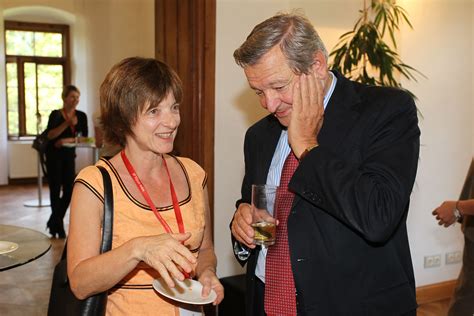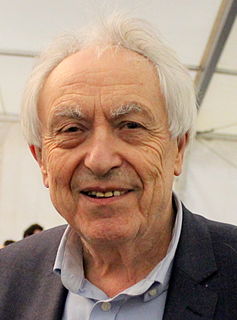A Quote by Marcus Aurelius
Death, like birth, is one of nature's mysteries, the combining of primal elements and dissolving of the same into the same.
Related Quotes
Nothing retains its form; new shapes from old. Nature, the great inventor, ceaselessly contrives. In all creation, be assured, there is no death - no death, but only change and innovation; what we men call birth is but a different new beginning; death is but to cease to be the same. Perhaps this may have moved to that, and that to this, yet still the sum of things remains the same.
Death is the moment of form dissolving. When that dissolving is not resisted, an opening appears into the dimension of the sacred, into the One formless, unmanifested Life. This is why death is such an incredible opportunity. There is no transformation of human consciousness without the dissolving that death brings.
All death in nature is birth, and at the moment of death appears visibly the rising of life. There is no dying principle in nature, for nature throughout is unmixed life, which, concealed behind the old, begins again and develops itself. Death as well as birth is simply in itself, in order to present itself ever more brightly and more like to itself.
Whenever learners or those beyond learning awaken the mind, for the first time they plant one buddha-nature. Working with the four elements and five clusters, if they practice sincerely they attain enlightenment. Working with plants, trees, fences and walls, if they practice sincerely they will attain enlightenment. This is because the four elements and five clusters and plants, trees, fences and walls are fellow students; because they are of the same essence, because they are the same mind and the same life, because they are the same body and the same mechanism.
Siblings may be ambivalent about their relationships in life, but in death the power of their bond strangles the surviving heart. Death reminds us that we are part of the same river, the same flow from the same source, rushing towards the same destiny. Were you close? Yes, but we didn't know it then.
When one existentially awakens from within, the relation of birth-and-death is not seen as a sequential change from the former to the latter. Rather, living as it is, is no more than dying, and at the same time there is no living separate from dying. This means that life itself is death and death itself is life. That is, we do not shift sequentially from birth to death, but undergo living-dying in each and every moment.
Nothing comes to pass in nature, which can be set down to a flaw therein; for nature is always the same, and everywhere one and the same in her efficacy and power of action: that is, nature's laws and ordinances, whereby all things come to pass and change from one form to another, are everywhere and always the same; so that there should be one and the same method of understanding the nature of all things whatsoever, namely, through nature's universal laws and rules.
Frankenstein feels like an ancient tale, the kind of traditional story that appears in many other forms. It appeals to something very primal, but it's also about profound things, the very nature of life and death and birth - about, essentially, a man who is resisting the most irresistible fact of all, that we will be shuffling off this mortal coil.
Nothing is going to stay the same; nothing's gonna sound like in 1952. There's some stuff that has some elements of back in the day, like back in the 90's, back in the 80's or whatever. Some elements, but it's not going to be the same, exactly, sounding. And I love it, I've seen the music change. I've seen the flow and the energy go from turned up to turned down to back to turned up. I like to try different stuff. I don't like to do the same old thing over and over again. I don't like to be repetitive, that gets on my nerves.
Is it not possible that the chimpanzees are responding to some feeling like awe? A feeling generated by the mystery of water; water that seems alive, always rushing past yet never going, always the same yet ever different. Was it perhaps similar feelings of awe that gave rise to the first animistic religions, the worship of the elements and the mysteries of nature over which there was no control? Only when our prehistoric ancestors developed language would it have been possible to discuss such internal feelings and create a shared religion.
The truth for women living in a modern world is that they must take increasing responsibility for the skills they bring into birth if they want their birth to be natural. Making choices of where and with whom to birth is not the same as bringing knowledge and skills into your birth regardless of where and with whom you birth.









































